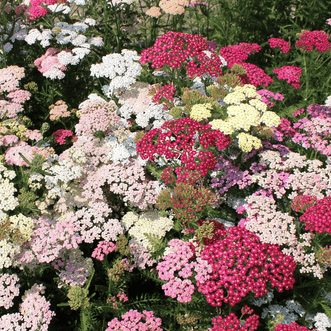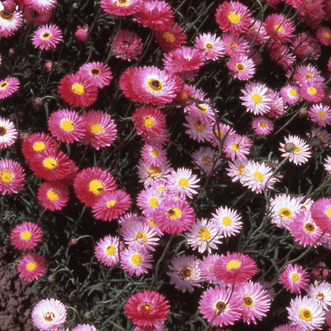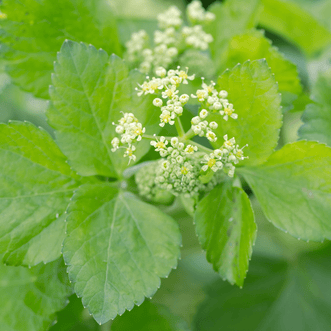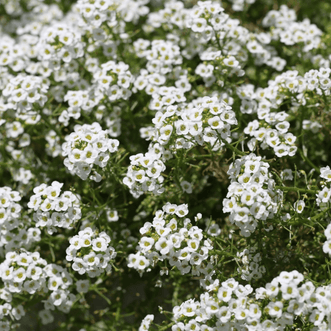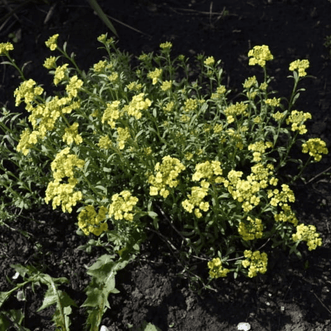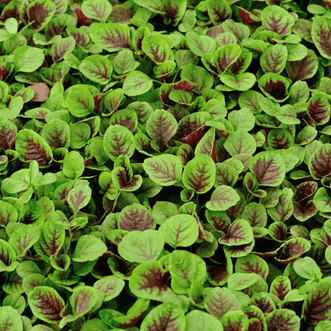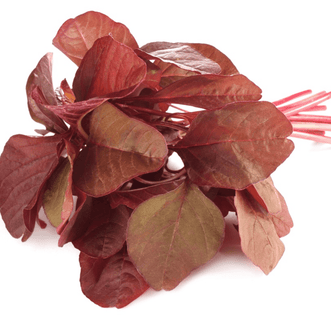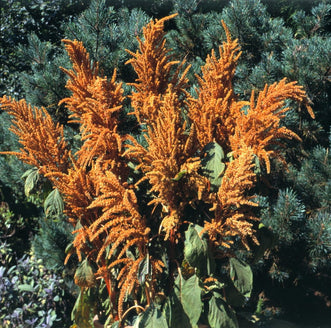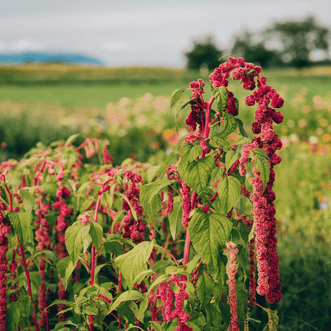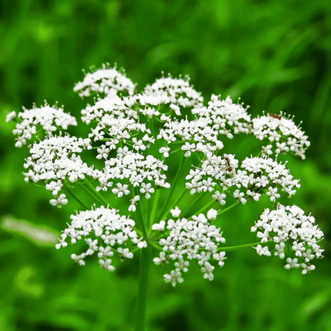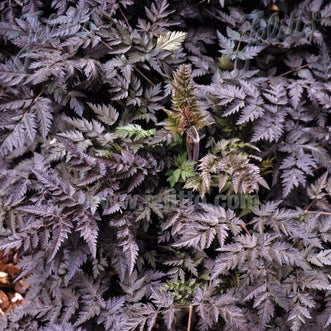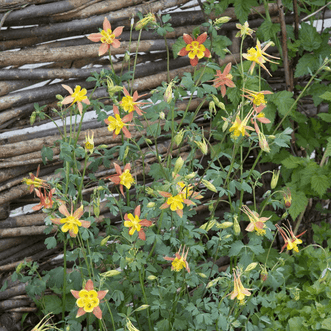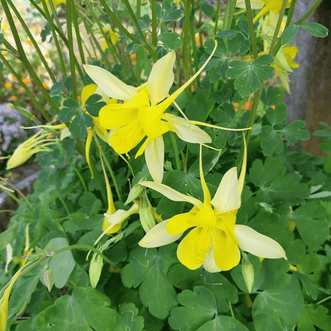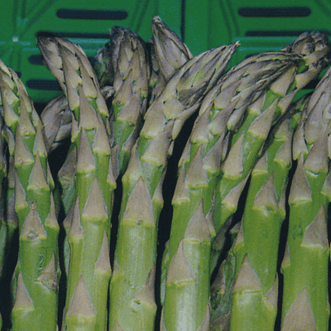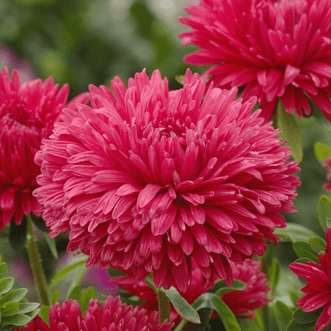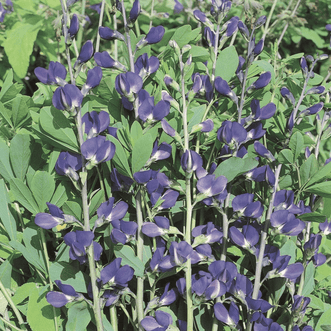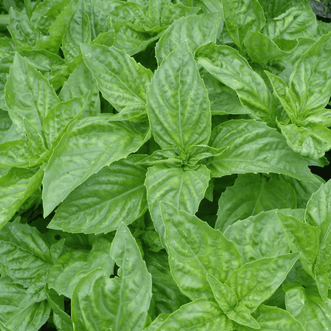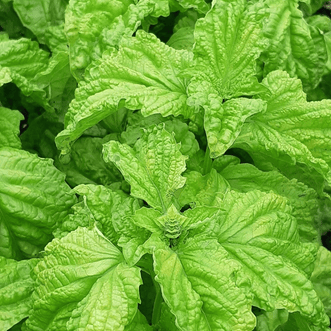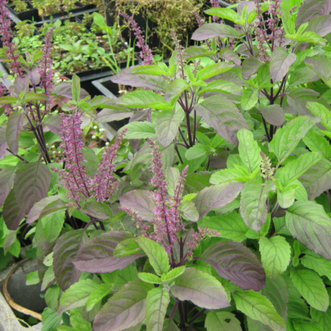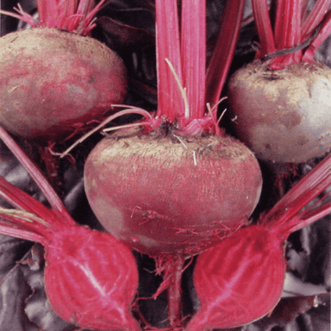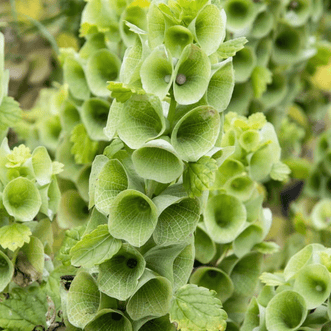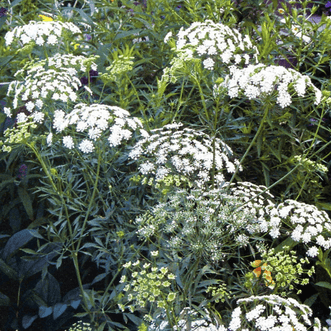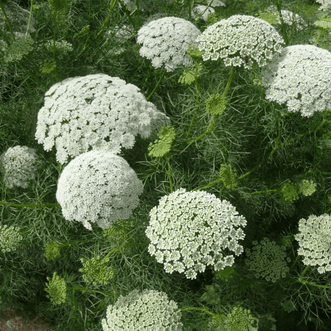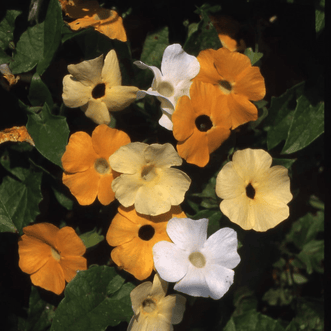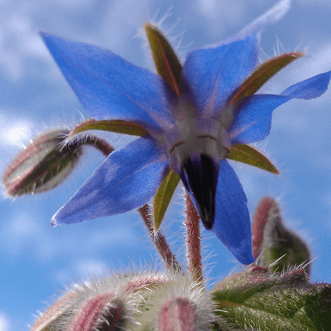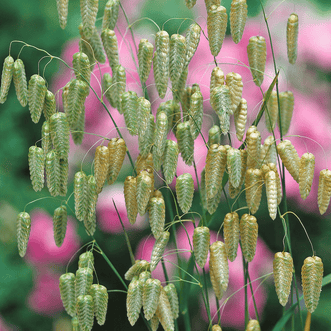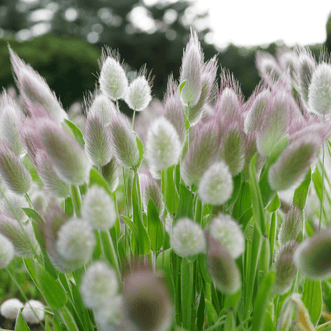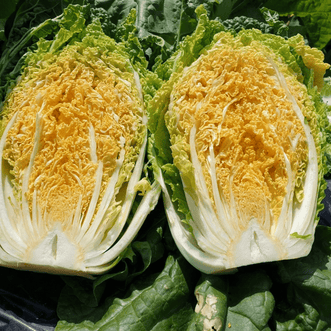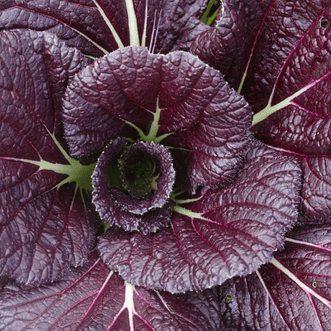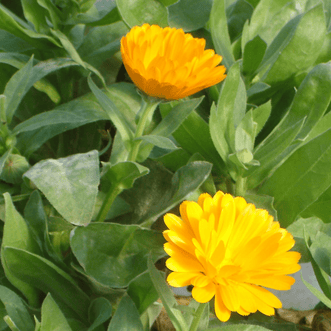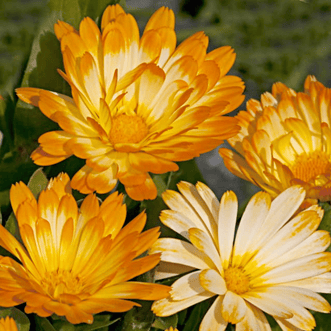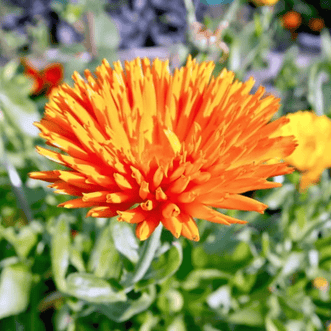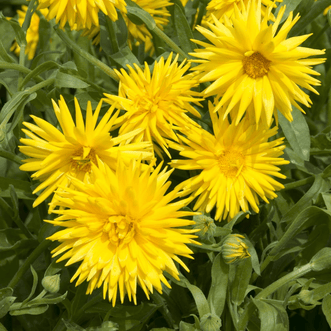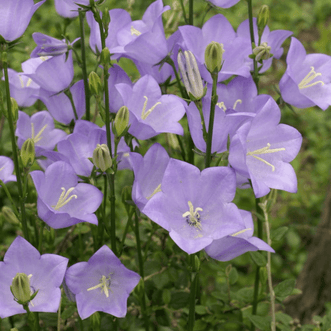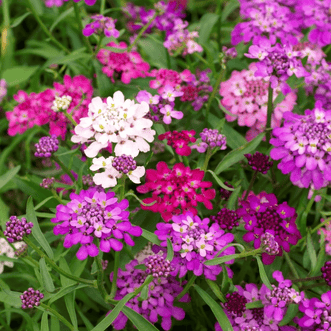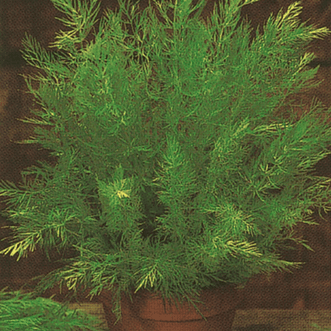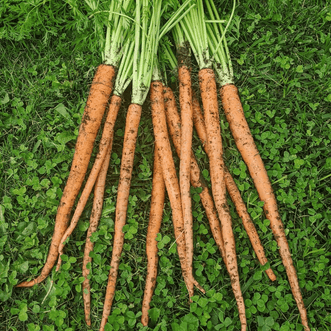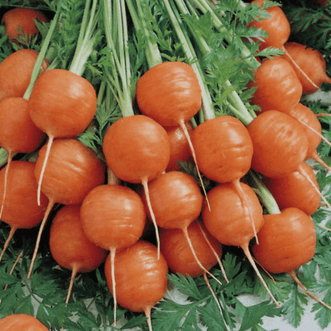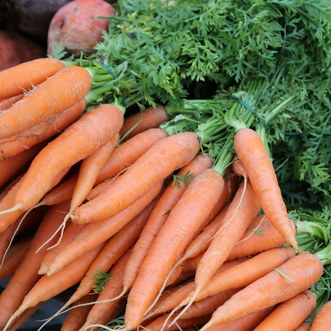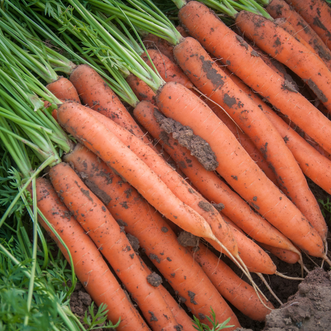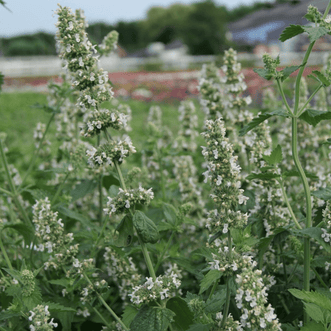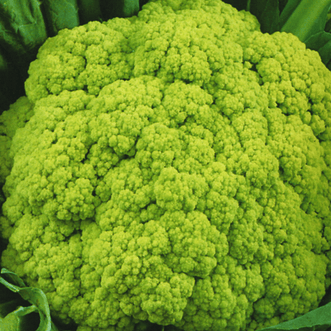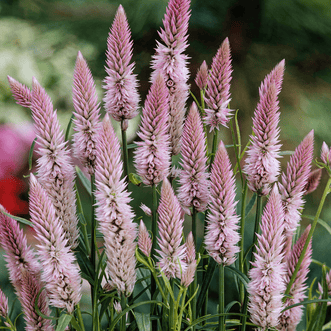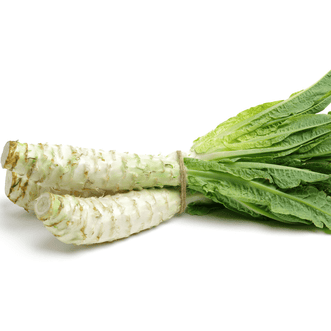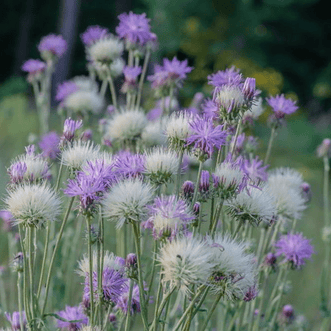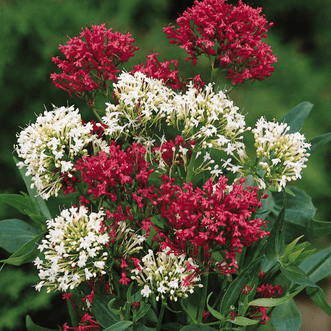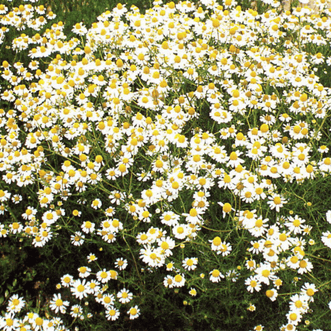Plants to Attract or Repel Insects
Carolyn
This week’s blog post is about what you can plant to attract or repel insects.
There is a real danger of becoming distracted when thinking over what to write. First I thought I might do a wonder through the garden with the camera, looking for beneficial insects to photograph. I wanted all the photos on today's post to be from my garden. Instead, I picked our first rock melon (and ate half of it), gobbled up all the ripe raspberries and blueberries, became distracted picking a bunch of nasturtiums in many different colours, and finally came inside with deadlines looming and without any insect photos. It seemed a shame to waste the photo of the nasturtiums, so I am including that as well.

But what is a beneficial insect, actually? It would be good to know which insects we want to attract into our gardens and why. Some of the qualities that make an insect welcome into our gardens is if they are pollinators, if they eat other more harmful bugs that we consider to be pests. Having a strong population of beneficial insects in the garden may mean that you don’t even see pest infestations – the threat is over before it has begun. It’s a great example of nature’s balance.
What we can do to support beneficial insects
If we provide shelter, water and food, we can encourage these insects to come to our gardens, and stay, and we can enjoy the natural pest control that comes with this complex balance between the “good bugs” and the “bad bugs”. Here are some ideas on what we can do to provide a welcoming habitat in our gardens for beneficial insects.
Feed Them
Plant a variety of flowers to produce nectar and pollen to supply your insects with food.
Rather than plant a few scattered flowering plants through your vegetable garden, consider giving some of your growing space over to a permanent site for growing plants that will support beneficial insects. This would provide an undisturbed habitat for your insects and can also be a source of beauty and joy in your garden. A wildflower bed or meadow near your vegetable beds would look beautiful and provide a permanent home and food source for your beneficial insects, and for those who spend part of the life cycle underground, living in a part of the garden that doesn’t have its soil turned and tilled will support them.
Plant Hedges and Natives
Consider using hedgerow and native planting in your gardens to support native insects and increase diversity so that you are providing the best habitat possible for your beneficial insects.

Using ground cover (plants or mulch) to cover the soil will support your beneficial insects. When the soil is exposed, so is their home and they can be exposed to extremes of temperature, wind and humidity levels that can affect them adversely. Mulching the garden of course also benefits your plants by keeping moisture levels even. Cover crops can be a great support to beneficial insects – sowing buckwheat, broad bean and mustard crops can provide shelter and food for your beneficial insects.
Provide Water
Just like all living creatures, your beneficial insects will need water. If you don’t have a water source (like a pond or a wetland area) in your garden, you could place some shallow containers around the garden, with a layer of gravel, and keep them filled with clean water to support your beneficial insects.
Beneficial insects in New Zealand:
I was wondering what was considered a beneficial insect in this country (and why), so I did a bit of research and found this article by the well-known bug guru, Ruud Kleinpaste, who identified the following beneficial insects. Of course, we always want to encourage bees into our garden, but Ruud also lists to the following as beneficial insects: Steel-blue ladybird larvae, Mealy-bug ladybirds, Harvestmen (Daddy long-legs), Spiders, Predatory mites, Hoverflies, Ground beetles, Parasitic flies, Parasitic wasps, and Ichneumon wasps. If you would like to know more, read through the article for some interesting details.
What to sow:
If you want to sow some seeds to encourage beneficial insects into your garden, you could look at this category to help you with your planning. Here are a few ideas:
Some flowering plants you could sow and grow to provide pollen and nectar are Phacelia, Borage, Calendula, Marigolds, Alyssum, Lavender, Echinacea and Poppies.
Herbs are wonderful in the garden to provide flavour in the kitchen, are beautifully aromatic in the garden, and once they in are flower, they are so popular with bees and other insects that you have to be very careful when brushing past them so as not to be stung! Some herbs that flower beautifully to support our beneficial insects are: Anise Hyssop, Basil, Chives, Coriander, Chervil, Dill, Marjoram, Rosemary, Yarrow, Catmint and Thyme
Also consider using our Wildflower mixes to create a long-term meadow for your beneficial insects, and use our green manure and cover crop options to sow cover crops and protect your soil. Crimson Clover and Buckwheat, as well as Broad beans are good options.
But what if we are trying to DISCOURAGE insects from coming into our garden. After all, there are some we just get completely sick of. What can we sow to help us to repel the insects we don’t like? Here are some ideas for that:
Plant Basil to help repel flies and mosquitoes, carrot fly and whiteflies.
Plant catnip to repel ants, aphids, cabbage looper and cockroaches.
Warning – may attract cats! I did not take this particular photo but couldn't resist using it!
Plant chives to repel carrot fly and aphids
Coriander can be planted to repel aphids and spider mites.
Plant dill to repel aphids, spider mites and the cabbage looper
Fennel will repel aphids, slugs and snails.
Lavender will repel moths, fleas and flies, including mosquitoes.
Lemon thyme and lemon balm will also repel mosquitoes.
Marigolds will repel whiteflies and kill nematodes
Leeks and lettuces will repel carrot fly – plant them near your carrots for effective companion planting.
Rosemary will repel the cabbage looper and carrot fly, as well as slugs and snails.
Tansy will repel ants, many beetles and flies, along with cabbage white butterflies.

